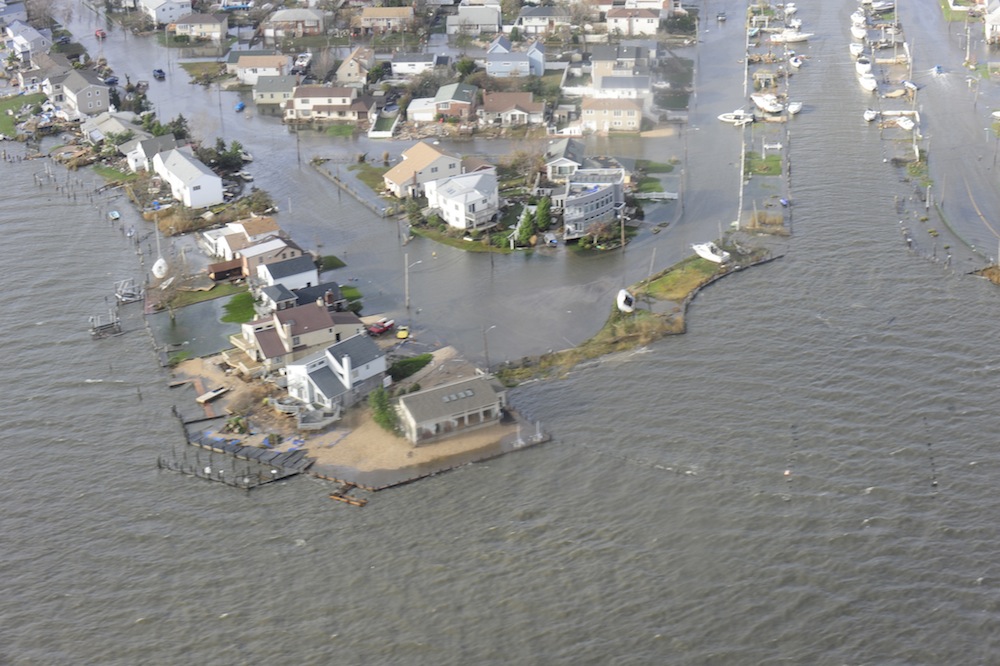Codes and standards concerning emergency backup power and other key resiliency matters should reflect lessons learned from Hurricane Sandy and other recent major storms, says Bhavesh Patel, vice president, global marketing for ASCO Power Technologies.
One standard, the NFPA 110: Standard for Emergency and Standby Power Systems, 2013 edition says, “EPSS (emergency power supply system) equipment should be located above known previous flooding elevations where possible.” And later states, “For natural conditions, EPSS design should consider the ‘100-year storm’ flooding level predicted by the Sea, Lake, and Overland Surges from Hurricanes (SLOSH) models for a Class A hurricane.”
“The qualifiers in the two paragraphs – ‘where possible’ and ‘should consider’ – can dilute the effect of the code if the project specifiers are not strict and careful in determining what ‘possible’ can entail,” Patel writes. “The words ‘where possible’ and ‘should consider’ are not as straightforward in conveying intent as a more emphatic ‘must,’ and leaves the door open for less sense of the need to comply.”
Patel notes that a post-Hurricane Sandy task force has recommended that New York City codes be updated to locate building equipment higher to avoid flood damage, require sewage valves to prevent backflows during flooding, and provide for easy access to backup generator hookups.
Related Stories
| Sep 7, 2012
Lorain, Ohio considers halting downtown construction while it works out development plan
Construction would stop downtown for six months while Lorain, Ohio officials consider a development plan for the city, according to new legislation.
| Sep 7, 2012
Business, labor groups push for easing of California’s Environmental Quality Act
Business and labor groups have combined forces to push for a change to California's Environmental Quality Act, specifically its complex review process for building and construction projects.
| Sep 7, 2012
Twenty years later, Florida contractors cite Hurricane Andrew as construction game-changer
Remarking on the 20th anniversary of Hurricane Andrew, which devastated south Florida; contractors are noting the storm’s impact on their industry—including the state’s adoption of tougher building codes.
| Sep 7, 2012
At risk for nine types of natural disasters, Texas trails most coastal states on building codes
Texas has the most diverse weather risk in the country, with exposure to nine different types of natural disasters.
| Aug 30, 2012
OSHA plans new crane-safety standards for demolition and underground work
The new rule will streamline OSHA’s standards by eliminating the separate cranes and derricks standard currently used for underground and demolition work.
| Aug 30, 2012
Federal government cancels defense contracts worth $2.15 billion
This action may foreshadow federal spending cuts scheduled for year's end if Congress takes no action on the federal budget.
| Aug 30, 2012
Public comment period is open for CRRC-1 standard
The CRRC-1 standard covers specimen preparation and test methods for measuring the initial and aged solar reflectance and thermal emittance of roofing products.
| Aug 30, 2012
LEED system's footprint reaches 2 billion sf, with 7 billion sf in the pipeline
About 7 billion more sf of commercial space is expected in the pipeline.
| Aug 30, 2012
Georgia drops LEED wood source standard on state projects
Currently, LEED green building standards only accept timber products certified by the Forest Stewardship Council (FSC).
| Aug 21, 2012
AGC offers second edition of the Federal Government Contractor: Ethics & Compliance Programs manual
This publication helps contractors appreciate the grounds for an alleged violation of the expected standards of business conduct and ethics, and to develop, implement, and document an effective ethics and compliance program.
















